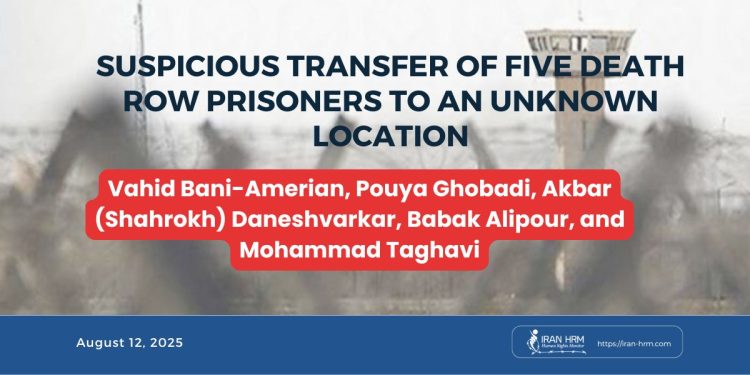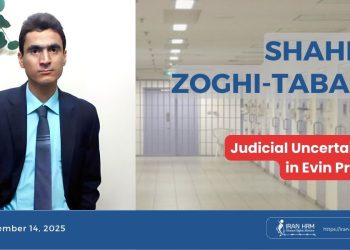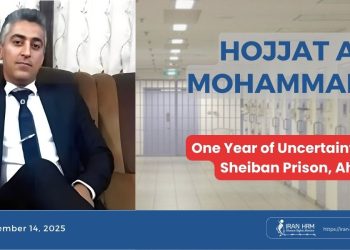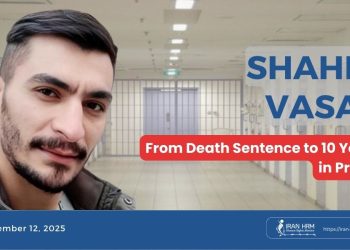The suspicious transfer of five death-row prisoners to an undisclosed location, placing their lives in imminent danger. These prisoners are Vahid Bani-Amerian, Pouya Ghobadi, Akbar (Shahrokh) Daneshvarkar, Babak Alipour, and Mohammad Taghavi, who, after being separated from other political prisoners, were — contrary to earlier announcements — not transferred to Qezel Hesar Prison, and their current place of detention is unknown.
According to informed sources, the prisoners had previously been told that their transfer destination was Qezel Hesar Prison, and even the escorting officers confirmed this. However, after the relocation, Qezel Hesar officials denied any knowledge of their presence.
Growing Concern Among Families and Human Rights Activists
The denial by officials, the lack of any response to families’ follow-ups with judicial authorities, and the authorities’ lack of transparency have doubled concerns. Similar cases in recent weeks and months have shown that such transfers are sometimes a prelude to the sudden execution of the death sentence or the imposition of severe psychological and physical pressure on prisoners.
Qezel Hesar: The Silent Slaughterhouse of Opponents
Multiple pieces of evidence and reports indicate that Qezel Hesar Prison, instead of fulfilling its legal role as a place for holding convicts, has effectively become a “safe house” for security forces and a platform for enforced disappearance and elimination of political opponents. Civil activists emphasize that, in addition to senior officials of the Islamic Republic, the direct responsibility for this process lies with the senior management and staff of Qezel Hesar Prison, who, by cooperating with security forces, play a key role in executing repression scenarios.
Ward 3: A Place of Isolation and Disconnection
Reports indicate that in recent weeks, several political prisoners sentenced to death have been transferred to Ward 3 of Qezel Hesar without informing their families or lawyers. In this ward, prisoners are deprived of the right to phone calls, meetings with lawyers, and information about the progress of their interrogations. Many of them, after a period of uncertainty, are confronted with vague and unsubstantiated charges such as “espionage” or “collaboration with the enemy,” and then receive harsh sentences or death penalties.







